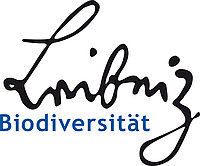Leibniz Research Networks
Leibniz Research Networks are dedicated to a specific topic or key technology. The aim is to combine, exchange and further develop the professional and methodological-technical expertise of the participating Leibniz Institutes and to make it visible to the outside world. Leibniz research networks are established by the Leibniz Presidium on the basis of proposals from the Leibniz Association.
The ATB is actively involved in three Leibniz Association networks.
We present these networks here...
Leibniz Research Network "Mathematical Modelling und Simulation (MMS)"

Modern methods of mathematical modelling and simulation have proven to be a fundamental resource for scientific and technological progress. With their help, expensive and energy-intensive experiments in basic research in industry and natural science can be avoided, predictions can be made in dangerous or impossible experiments (including climate, environment) and risks of new technologies can be assessed. Methods from very different areas of mathematics are applied. Problems can be analysed on all spatial and time scales and at different levels of complexity: from the company to the world economy, from the local environmental event to the global climate model. Often, the methods can be used not only in the respective application context, but also in completely different branches of science.
The aim of the Leibniz Research Network MMS is to systematically exploit this potential for effectiveness and to use it for synergies. The central question here is which methods from current mathematical research are the most suitable, fastest and most error-resistant, and how existing software and hardware resources can be used sustainably.
In the environmental sciences (Section E of the Leibniz Association, to which ATB also belongs), MMS is used in the field of climate and atmospheric research, e.g. in models for the statistical simulation of regional climate change, in various models for simulating dynamic processes in the atmosphere or for modelling and simulating the temporal change of deformation and mass transport, and in modelling heat and mass transport in the subsurface.
The network is coordinated by the Weierstrass Institute for Applied Analysis and Stochastics (WIAS).
Leibniz Research Network „Green Nutrition - Healthy Society“
In the context of climate and social change and their effects, cross-disciplinary solution strategies are needed for the transformation towards a healthy and sustainable food system. The Leibniz Research Network ‘Green Nutrition – Healthy Society’ combines expertise from the fields of healthy nutrition, health, biodiversity, the environment, climate change, food production and sustainable development, as well as their social relevance. ‘Green nutrition’ encompasses both nutritionally optimal nutrition and resource-efficient food production, processing and distribution.
The network's goals are, in addition to scientific exchange, the identification of specific research needs on current issues in the field of healthy and sustainable nutrition; the initiation of interdisciplinary cooperation, far-sighted support for young scientists and career development; as well as the establishment of an active exchange with political actors and a regular transfer of knowledge in politics and the public.
Leibniz Biodiversity
The Leibniz Research Network for Biodiversity (Leibniz Biodiversity) combines and connects the expertise of 18 Leibniz institutions in the environmental, life, spatial, social and economic sciences. The scientists at the participating institutions record and explore the biological diversity of life and develop socially relevant solutions for the protection and sustainable use of biodiversity through interdisciplinary research.
10 must-knows from biodiversity research in 2024: In the 10 must-knows from biodiversity research in 2024, 64 scientists have further developed their in-depth and diverse findings and recommendations from the 10MustKnows22.
Contact at ATB: Prof. Dr. Annette Prochnow


